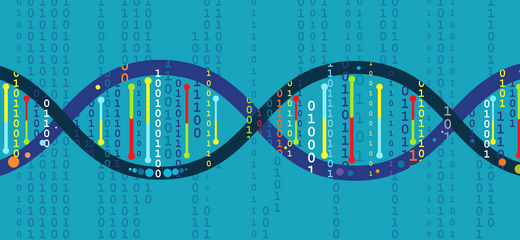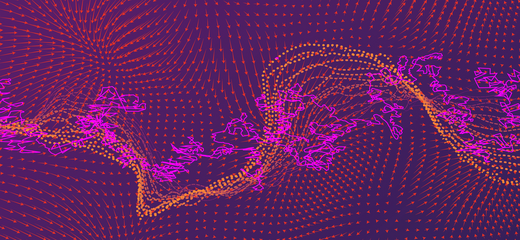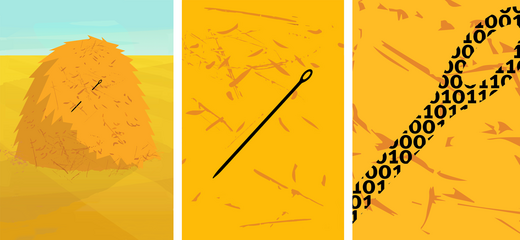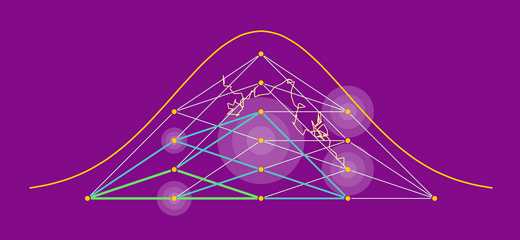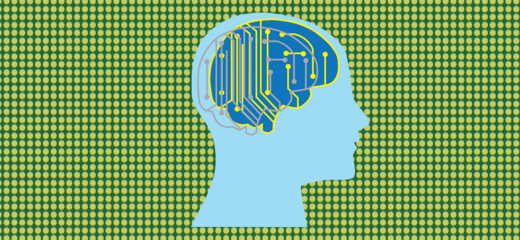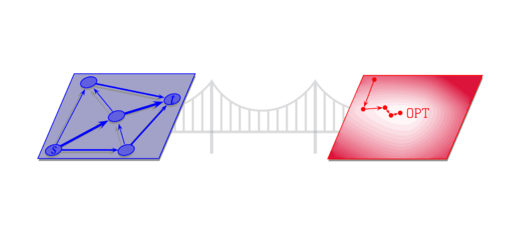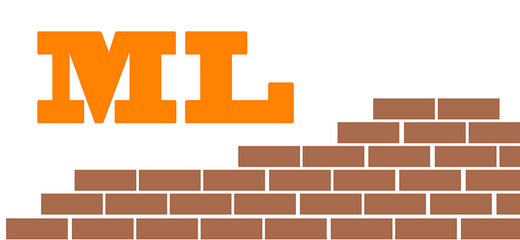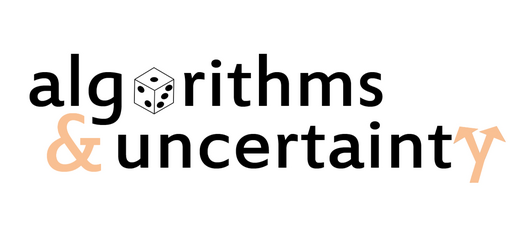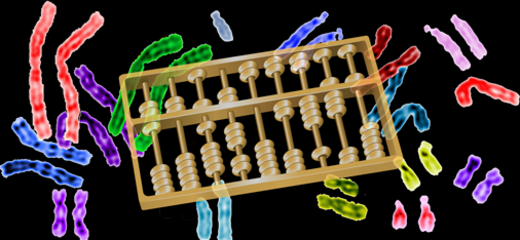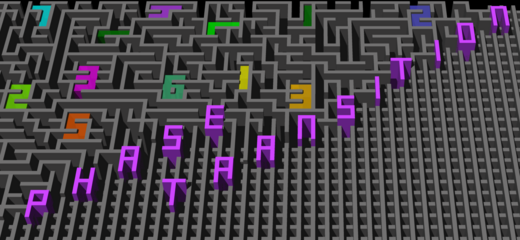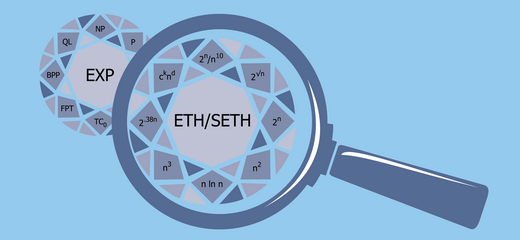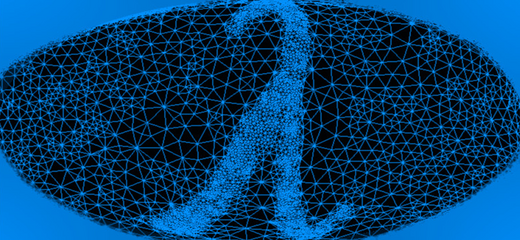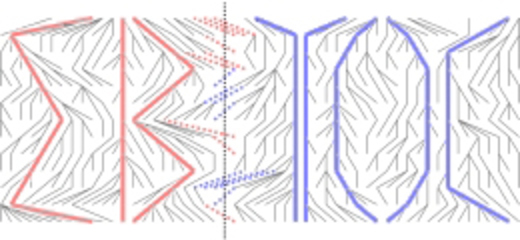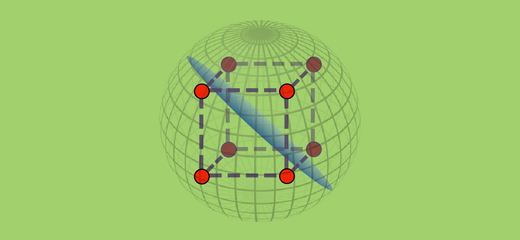Past Programs
Fall 2022
Aug. 17–Dec. 16, 2022
This program aims to develop algorithms for sequential decision problems under a variety of models of uncertainty, with participants from TCS, machine learning, operations research, stochastic control and economics.
Aug. 17–Dec. 16, 2022
This program will bring together experts from various fields to study networks, from graph limits, to modeling and estimation, to processes on networks. Application areas include epidemics, spread of information and other economic and social processes.
Summer 2022
May 23–Jun. 24, 2022
This extended reunion will study fundamental questions on integer lattices and their important role in cryptography and quantum computation, bringing together researchers from number theory, algorithms, optimization, cryptography, and coding theory.
Jun. 27–Aug. 5, 2022
This cluster focuses on the growing concerns regarding the future of individuals, groups, societal institutions and values shaped, manipulated, and challenged by the imperatives of AI.
Jun. 27–Aug. 5, 2022
Convenes an interdisciplinary group of scholars to develop firm theoretical and philosophical foundations for addressing some major issues concerning the interpretability of machine learning–based models.
Jul. 5–Aug. 5, 2022
This summer program aims to bring together computational and applied researchers to address key challenges in bioinformatics.
Jul. 6–Aug. 5, 2022
This cluster will aim to develop the theoretical foundations of deep learning, particularly the aspects of this methodology that are very different from classical statistical approaches.
Spring 2022
Jan. 11–May 13, 2022
This program will bring together theoretical and applied researchers with the aim of understanding the complexity, optimization, and approximation questions underlying causal inference and discovery.
Jan. 11–May 13, 2022
By bringing together researchers from machine learning, economics, operations research, theoretical computer science, and social computing, this program aims to advance the connections between learning theory, game theory, and mechanism design.
Fall 2021
Aug. 18–Dec. 17, 2021
This program brings together researchers in complexity theory, algorithms, statistics, learning theory, probability, and information theory to advance the methodology for reasoning about the computational complexity of statistical estimation problems.
Aug. 18–Dec. 17, 2021
This program aims to develop a geometric approach to various computational problems in sampling, optimization, and partial differential equations.
Summer 2021
Spring 2021
Jan. 12–May 14, 2021
This program aims to foster interaction between theoreticians and practitioners to understand real-world efficient computation with a particular focus on the satisfiability problem for Boolean formulas.
Jan. 12–May 14, 2021
Focusing on new developments in logic, automata, probabilistic modeling, games, and cyber-physical systems, this program aims to develop the theoretical foundations of computer systems.
Fall 2020
Aug. 19–Dec. 18, 2020
This program aims to advance our understanding of high-dimensional problems by focusing on the interplay between probability, geometry, and computation.
Aug. 19–Dec. 18, 2020
This program will bring together researchers in computer science, control theory, operations research and statistics to advance the theoretical foundations of reinforcement learning.
Spring 2020
Jan. 14–May 15, 2020
This program will study fundamental questions on integer lattices and their important role in cryptography and quantum computation, bringing together researchers from number theory, algorithms, optimization, cryptography, and coding theory.
Jan. 14–May 15, 2020
This program will bring together researchers from computer science, physics, chemistry and mathematics to focus on the two grand challenges of quantum computation: developing the most promising algorithmic applications for quantum computers, and developing methods to test quantum devices.
Fall 2019
Aug. 21–Oct. 4, 2019
This short-format program will focus on the design of markets for online platforms, exploiting advances in theoretical computer science, economics and operations research.
Aug. 21–Dec. 20, 2019
This program will bring together researchers from Computer Science and beyond, whose research is contributing to three subthemes: proof systems, decentralized consensus, and applications of these to society, economics, and cryptocurrencies.
Summer 2019
May 23–Aug. 9, 2019
This program will bring together researchers from academia and industry to develop empirically-relevant theoretical foundations of deep learning, with the aim of guiding the real-world use of deep learning.
Jul. 11–Aug. 9, 2019
Spring 2019
Jan. 15–May 17, 2019
This program aims to promote research on the theoretical foundations of data privacy, as well as on applications in technical, legal, social and ethical spheres.
Jan. 15–May 17, 2019
This program will focus on emerging connections between the analytic theory of multivariate polynomials (sometimes called "the geometry of polynomials") and theoretical computer science as well as related fields such as combinatorics, probability, statistical physics, optimization and real algebraic geometry.
Fall 2018
Aug. 15–Dec. 14, 2018
Taking inspiration from the areas of algorithms, statistics, and applied mathematics, this program aims to identify a set of core techniques and principles for modern Data Science.
Aug. 15–Dec. 14, 2018
This program will bring together leading researchers in computational complexity theory to tackle fundamental questions on the capabilities and limitations of various models of computation.
Summer 2018
Spring 2018
Jan. 9–May 11, 2018
The program will bring together experts in physical science, engineering and societal systems with mathematical and computational scientists to work on a wide range of problems involving real-time discovery and inference.
Jan. 9–May 11, 2018
This program aims to rekindle the historical affinity between the fields of Neuroscience and Theoretical Computer Science, in order to attack some of the most important current problems in understanding the structure and function of the brain.
Fall 2017
Aug. 16–Dec. 15, 2017
The last decade has seen an emerging confluence of ideas from discrete and continuous optimization, leading to several significant breakthroughs. This program will bring together researchers from both the discrete and continuous optimization communities in order to stimulate further interaction at this interface.
Spring 2017
Jan. 10–May 12, 2017
This program aims to extend the reach and impact of CS theory within machine learning, by formalizing basic questions in developing areas of practice, advancing the algorithmic frontier of machine learning, and putting widely-used heuristics on a firm theoretical foundation.
Jan. 10–May 12, 2017
This program will gather researchers in theoretical computer science, combinatorics and number theory to develop a unified approach to notions of pseudorandomness and their applications.
Fall 2016
Aug. 17–Dec. 16, 2016
Classical approaches to algorithm design are both over-pessimistic (in making worst-case assumptions about the input) and over-optimistic (in assuming that the input is completely specified). This program explores alternatives to worst-case analysis of algorithms, as well as new methods for addressing uncertainty in instance specifications, with reference to a broad range of applications in learning, optimization and control.
Aug. 17–Dec. 16, 2016
Logic in computer science has long been associated with two main themes: the interaction of logic with algorithms and complexity theory, and the semantics of programs and processes. This program will bring together researchers from both ends of this spectrum, with the aim of bridging this decades-old divide.
Spring 2016
Jan. 11–May 13, 2016
This program aims to unify data-driven and theoretical developments in bioinformatics by bringing together leaders and young scientists with strong interests in the algorithmic, methodological and theoretical aspects of computational biology.
Jan. 11–May 13, 2016
Research on computational aspects of counting problems and partition functions has recently seen significant advances. This program aims to better understand the computational complexity of both exact and approximate counting problems, and their relationship to phase transitions in combinatorics and statistical physics.
Fall 2015
Aug. 19–Dec. 18, 2015
Economics and computer science have developed a remarkable number of points of contact over the past two decades. This program aims to build on these existing interactions in order to identify and make progress on a new generation of research problems at the intersection of the two fields.
Aug. 19–Dec. 18, 2015
This program will explore deep connections between algorithm design and lower bounds in computational complexity, with the goal of understanding the exact amount of time needed to solve a variety of basic computational problems.
Summer 2015
May 18–Aug. 14, 2015
As organizations and individuals are increasingly outsourcing storage and computation to large third-party systems, the need to simultaneously guarantee privacy, availability of data and correctness of computations is more crucial than ever. This program focuses on new developments in cryptography that address these issues, including homomorphic encryption, program obfuscation and verifiable outsourcing.
Spring 2015
Jan. 13–May 15, 2015
The program will bring together experts in information theory and theoretical CS to explore the application of information theoretic techniques in complexity theory and combinatorics, the theory and applications of coding theory, and connections between information theory, machine learning and big data.
Fall 2014
Aug. 21–Dec. 19, 2014
This program addresses the use of spectral methods in confronting a number of fundamental open problems in the theory of computing, while at the same time exploring applications of newly developed spectral techniques to a diverse array of areas.
Aug. 21–Dec. 19, 2014
The program will explore applications of modern algebraic geometry in computer science, including such topics as geometric complexity theory, solving polynomial equations, tensor rank and the complexity of matrix multiplication.
Spring 2014
Jan. 13–May 16, 2014
The objective of this program is to bring together theoretical computer scientists and researchers from evolutionary biology, physics, probability and statistics in order to identify and tackle the some of the most important theoretical and computational challenges arising from evolutionary biology.
Jan. 13–May 16, 2014
Quantum Hamiltonian complexity is an exciting area combining deep questions and techniques from both quantum complexity theory and condensed matter physics. This interdisciplinary program will explore these connections and seek to establish a common language for investigating the outstanding issues at the heart of quantum Hamiltonian complexity.
Fall 2013
Aug. 22–Dec. 20, 2013
The goal of this program is to bring together mathematicians and computer scientists to study influences, measures of complexity of discrete functions, functional inequalities, invariance principles, non-classical norms, representation theory and other modern topics in mathematical analysis and their applications to theoretical computer science.
Aug. 22–Dec. 20, 2013
This program will combine viewpoints and techniques from the theory of computation, statistics, and related areas with the aim of laying the theoretical foundations of the emerging field of Big Data.








